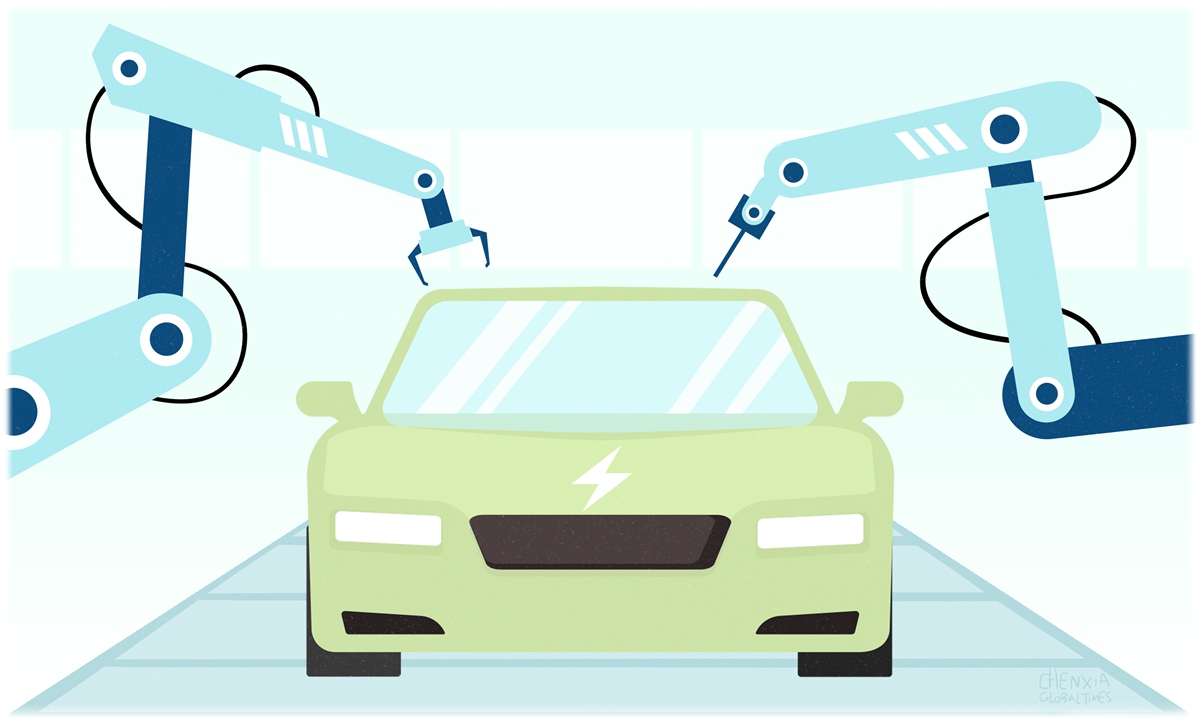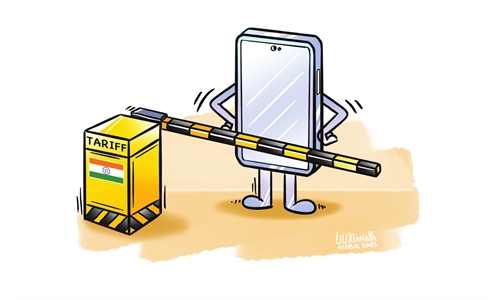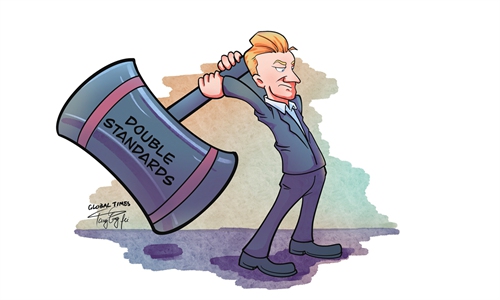
Illustration: Chen Xia/Global Times
China has filed a complaint at the World Trade Organization (WTO) over discriminatory subsidies on new-energy vehicles (NEVs) under the US Inflation Reduction Act (IRA). When reporting on China's actions, some Western media outlets made a special mention of how China is now accused of "providing subsidies to the NEV industry," too. It seems worthwhile to clarify the difference between China's support for its renewable energy sectors and discriminatory US subsidies for NEVs.Ambassador Fu Cong, head of the Chinese Mission to the EU, who is departing Brussels after over one year in the job, said in January in an interview with Bloomberg that the Chinese government only provided subsidies at the research stage of the electric vehicle (EV) industry, which is fully in line with WTO rules.
When it comes to EV manufacturing, Fu said there are absolutely no subsidies from the Chinese government. So, "it is unfair to accuse Chinese companies of receiving subsidies or imply that Chinese companies are developing and prospering because of the government subsidies," according to Fu.
What is the situation in the US? In August 2022, US President Joe Biden signed the IRA into law. The White House bluntly stated that the IRA aims to boost domestic manufacturing, create good-paying union jobs, and build more resilient, secure, and trusted supply chains. Obviously, the IRA focuses mainly on the manufacturing side, with the clear purpose of "boosting domestic manufacturing" through discriminatory subsidies.
The IRA offers generous subsidies, tax breaks and rebates for green technology to partly offset the costs of EVs, but only if carmakers complete vehicle assembly in North America and source a significant percentage of major battery components from the US or countries that have free trade agreements with the US. The act is a discriminatory practice helping American companies gain an unfair competitive advantage.
With the discriminatory act, the private sector announced more than $70 billion in investment in the EV supply chain in the 12 months since the act was signed into law, the White House said. Biden has touted his policies that he said have revived US manufacturing. Although many doubt the effectiveness of the act, there is a common consensus that its discriminatory subsidies will have a negative impact on the global economy and supply chain.
First, an increase in US manufacturing employment is based on discriminatory subsidies that loot and plunder manufacturing job opportunities in the rest of the world. This will eventually cause dissatisfaction among US partners. From this perspective, the current policies lack sustainability in the long term.
Second, such a discriminatory act distorts fair competition and the global supply chain. Discriminatory subsidies on the manufacturing side encourage international industrial transfers from areas with low production costs to areas with high manufacturing costs.
In this process, production efficiency is wasted and market rules are distorted. It will affect the development of the entire EV industry chain and the world's green transformation.
China's Ministry of Commerce said in a statement on Tuesday that discriminatory subsidy policies adopted by the US have violated WTO rules such as national treatment and most-favored-nation treatment, which China firmly opposes.
China takes the lead in the development of NEVs. It does not rely on so-called subsidies to form a competitive advantage. Its cost advantage can be attributed to multiple factors including a complete industry chain and relatively low labor costs. None of those seem to be factors related to subsidies.
Chinese officials said that China firmly stands for the rules-based multilateral trading system and respects the legitimate rights of WTO members to implement industry subsidies within the framework of WTO rules and promote their own economic and social development.
Western media outlets should heed the voices of Chinese officials. Discriminatory subsidies on NEVs under the IRA are fundamentally different from the normal industry subsidies that are the legitimate rights of WTO members.
The author is a reporter with the Global Times. bizopinion@globaltimes.com.cn



